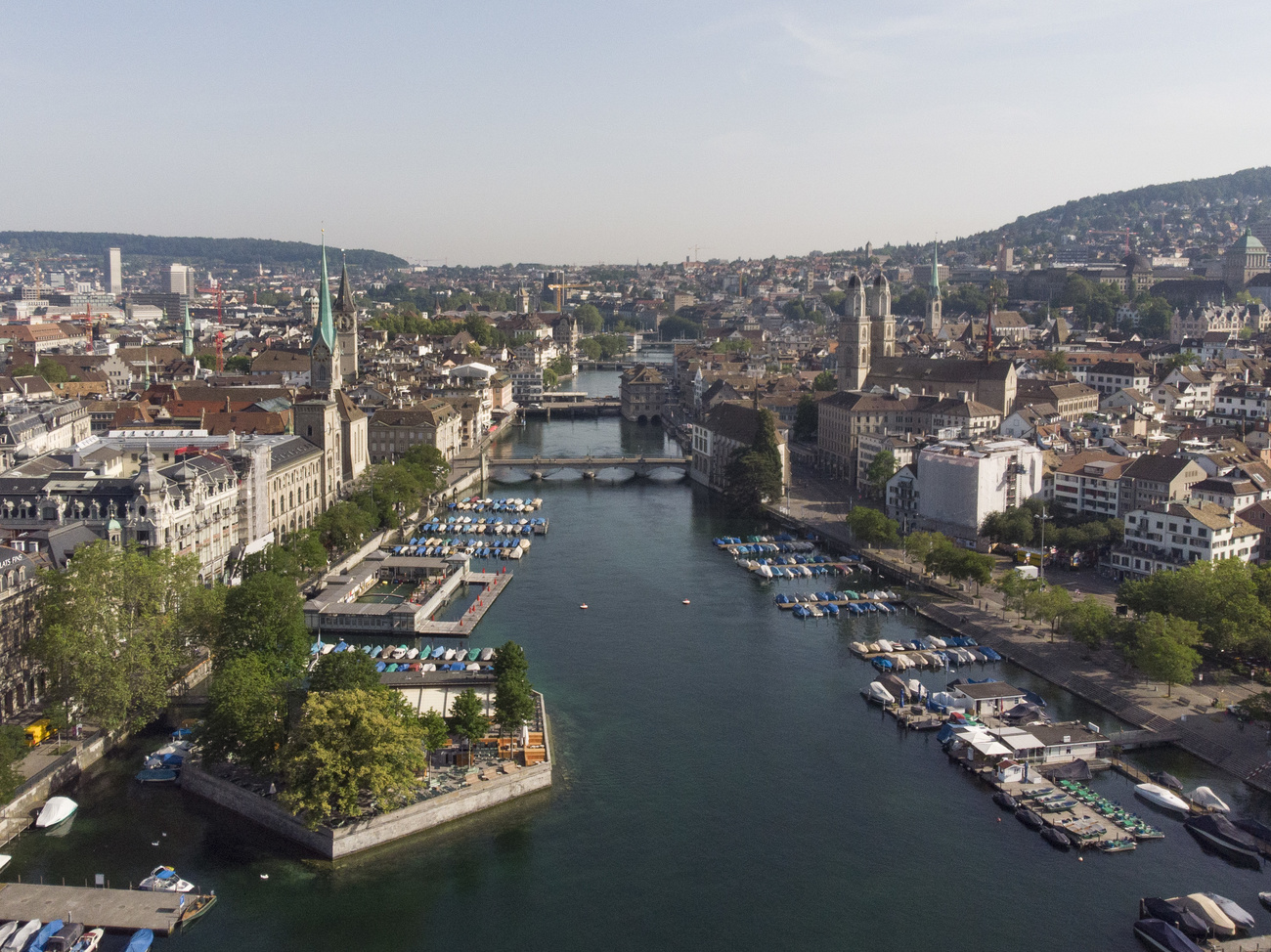
Zurich shoppers must wear face masks against coronavirus

After Basel City, Zurich has become the second German-speaking canton to require customers to wear face masks in shops and shopping centres due to the spread of the new coronavirus.
The compulsory mask rule, which will come into force in Zurich from August 27, currently exists for shops in cantons Vaud, Jura, Geneva and Neuchâtel in French-speaking regions.
The changes come after a rise in new cases in recent weeks. On August 24, the seven-day average for Switzerland reached 257.4 new cases per day, which is a 19% increase from the previous week. It hit 61.4 in canton Zurich – currently the worst-affected region – a 27% increase from the previous week.
Zurich health officials warn that the virus is spreading rapidly among younger people aged 20-40.
Silvia Steiner, the president of the Zurich government, told a news conference on Monday that the authorities had the situation under control. But new preventive measuresExternal link are needed so that Zurich “does not become a risk area”, she added.
In addition to the face masks in shops, Zurich restaurants will be obliged to collect customers’ contact details to assist with tracing.
Stricter measures have also been introduced for clubs, bars and restaurants, where a 100-person limit will be tolerated for an interior area. Larger events and gatherings are possible for up to 300 people, but only if the 1.5-metre safe distance rule can be guaranteed or if face masks are worn. This measure applies to sporting events, theatre performamces, cinema screenings, concerts, church services, holiday camps, weddings and birthdays.
Mandatory masks
In Switzerland face masks are also mandatory on public transport, airplanes and at Basel and Geneva airports.
The federal government is leaving it up to cantons to decide how far they should go with mask mandates, although it has encouraged cantons to require them in closed public places. However, the face-mask issue has dogged Switzerland’s authorities throughout the pandemic, with every change in policy met by fierce public and political debate.
While there will generally be no mask wearing in primary schools this term, several cantons are requiring masks be worn among post-compulsory pupils, aged 15-16, when social distancing of at least 1.5 metres cannot be maintained.
This will be the case across the French-speaking part of Switzerland, which has announced a coordinated approach to mask-wearing among older pupils. The German-speaking cantons have no such coordination in place, although some cantons, like Lucerne and Bern, have insisted on masks. This piecemeal approach has already been criticised by teaching unions.
Universities such as the federal technology institute ETH Zurich and the University of Zurich have also introduced a mask requirement starting on August 24 and September 1, respectively.

More
Coronavirus: the situation in Switzerland

In compliance with the JTI standards
More: SWI swissinfo.ch certified by the Journalism Trust Initiative















![The four-metre-long painting "Sonntag der Bergbauern" [Sunday of the Mountain Farmers, 1923-24/26] had to be removed by a crane from the German Chancellery in Berlin for the exhibition in Bern.](https://www.swissinfo.ch/content/wp-content/uploads/sites/13/2025/12/01_Pressebild_KirchnerxKirchner.jpg?ver=f05a5a9c)














You can find an overview of ongoing debates with our journalists here . Please join us!
If you want to start a conversation about a topic raised in this article or want to report factual errors, email us at english@swissinfo.ch.